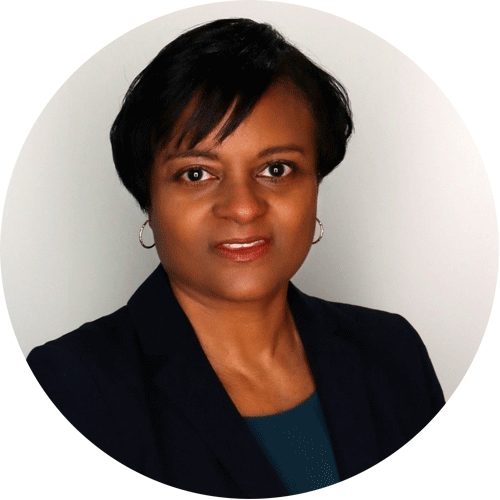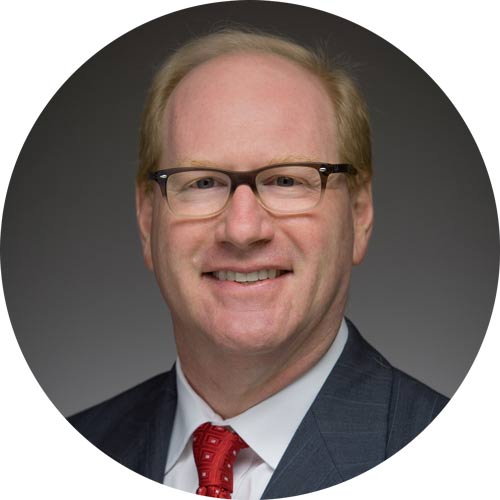Commencement Weekend was a terrific success, thanks to so many of you. I’m sure our graduates and their families took home memories that will last their lifetimes.
Your contributions — from creating the ceremony's pageantry, organizing food and arranging beautiful decorations, to warmly welcoming our students, parents and guests — have made this important occasion truly special. Thank you all for your hard work!!!
The College awarded 573 undergraduate degrees and 535 graduate degrees. Following is a roundup of the weekend — the people who helped with the events, a breakdown of the degrees awarded and the listing of faculty awards.
I was especially moved by the testimonial provided during the Graduate Diploma Ceremony by MBA student Kingsley Ukaulor about why he chose Notre Dame. He wrote in part:
“Notre Dame wasn’t my backup plan. It was a divine alignment… Because here, the doors don’t just open. They stay open long enough for you to find your way home. And for that, I will always find ways to give back.”
Kingsley’s words testify to the effort that you devote to serving our students all year long, and speak to our mission and the connections we build as part of the Notre Dame family.
I am also pleased to highlight that Rob Easley received the University’s Faculty Award. The Faculty Award recognizes impactful and lasting service to the University of Notre Dame as a leader among faculty colleagues. Rob was recognized as a “highly respected and trusted leader, mentor, and colleague across the Mendoza College of Business and the University, known for his collaborative spirit, deep expertise, and visionary thinking.”
As we close out the 2024-25 academic year, I am again deeply grateful for all you do. I hope the summer months ahead offer you a time of peace, restoration and renewal.
In Notre Dame,
Martijn
MENDOZA COMMENCEMENT 2025
UNDERGRADUATE DIPLOMA CEREMONY COMMITTEE AND VOLUNTEERS: Charissa Adishian, Katherine Alan, Fernando Briones, Katie Coleman, Brian Connelly, Heather DeCourval, Philip DeJonge, Drew Espeseth, Sam Fisher, Claire Fitzgibbon, Jessica Frazier, Chris Fruehwirth, Laura Glassford, Chris Grenert, Ashley Heberling, Lisa Heming, Sarah Joyce-Baker, Rachel Karnafel, Helen Keefe, Rob Kelly, Morgan Leach, Jeremy May, Shane McCoy, Minhee Myung, Maggie Neenan-Michel, Jessica Noffsinger, Kristy Patterson, Sarah Priebe, Amy Radvansky, Amanda Rink, Gina Shropshire, Marnie Stahl, Taylor Thomas, Andrew Wendelborn, Barb Westraand Rebecca Wood.
GRADUATE DIPLOMA CEREMONY COMMITTEE AND VOLUNTEERS: Katherine Alan, Shelley Arredondo-Rice, Mary Atkins, Sarah Joyce Baker, Chase Bair, Crystal Boser, Jennifer Brewer, Kim Brumbaugh, Katie Coleman, Brian Connelly, Samantha Crisp, Heather Decorval, Philip DeJonge, Chad DeWeese, Phil Drendall, Stephanie Drudge, Brian Edlefson, Lucas Eggers, Mikale Elliott, Nadia Ewing, Claire Fitzgibbon, Quin Gallagher, Christine Gramhofer, Ron Grisoli, Dave Grundy, Kalynda Hamilton, Helen High, Meghan Huff, Rob Kelly, Cathi Kennedy, Tabitha Kingsbury, Cassie Kline, Nickolas Kubik, Tracy Kulwicki, Santhosh Lakkaraju, Emily Marrese, Shane McCoy, Lisa Michaels, Teage Minier, Zara Osterman, Megan Piersma, Tracey Plenzler, Ryan Retartha, Paige Risser, Bill Schenher, Jessica Stookey, Jessica Tezich, Joseph Torma, Teresa True, Annette Tysver, Connie Varga, Wendy Walker, Diego Wang, Ben Wilson, Rebecca Wood, Janel Zakrzewski-Kuntzand Abby Zelenka.
PROGRAMS & EVENTS: Shelley Arredondo-Rice, Meghan Huff, Jean Meade, Joseph Torma and Wendy Walker.
FACILITIES AND PROGRAM OPERATIONS: Chad DeWeese, Ron Grisoli and Dana Pierce.
VIDEO, PHOTOGRAPHY AND SOCIAL MEDIA SUPPORT: Katie Coleman, Brian Edlefson, Carol Elliott, Jessica Frazier, Teage Minier andRebecca Wood.
SWAG SALE VOLUNTEERS: Chase Bair, Fernando Briones, Javier Carrillo, Katie Coleman, Brian Connelly, Hannah Crane, Heather DeCourval, Philip DeJonge, Brian Edlefson, Carol Elliott, Jessica Frazier, Dave Grundy, Santhosh Kumar Lakkaraju, Shane McCoy, Teage Minier, Min Hee Myung, Zara Osterman, Paige Risser, Cassie Smithand Rebecca Wood.
UNDERGRADUATE STUDIES DEGREES AWARDED
A total of 573 undergraduates received their diplomas:
- Accountancy: 68
- Business Analytics: 114
- Finance: 304
- Management Consulting: 39
- Marketing: 47
- Strategic Management: 1
UNDERGRADUATE FACULTY TEACHING AWARDS
COLLEGE LEVEL AWARD
Joe and Gina Prochaska Family Teaching Award: Tonia Murphy
ACADEMIC DEPARTMENT AWARDS
Accountancy
- James Dincolo Outstanding Undergraduate Professor Award: James O'Brien
- James Dincolo Outstanding Research Award: John Donovan
- James Dincolo Outstanding Teaching Award: Michael Favorite
- James Dincolo Outstanding Teaching Award: Illona Bastiaansen
- James Dincolo Outstanding Service Award: Colleen M. Creighton
- James Dincolo Outstanding Service Award: Tim Morrison
Finance
- Outstanding Undergraduate Professor Award: Jason Reed
- Outstanding Research Award: Ben Matthies
- Prochaska Outstanding Teaching Award: John Shim
- Department of Finance Outstanding Teaching Award: Kristen Collett-Schmitt
- Department of Finance Faculty Service Award: Jim Leady
IT, Analytics, and Operations
- Zachary Plantz Outstanding Undergraduate Teaching Award: Jennifer R. Waddell
- Outstanding Research Award: Yoon Son
- Prochaska Family Teaching Award: Francis Bilson Darku
- Outstanding Teaching Professor Award: Brandon Erlacher
- ITAO Department Faculty Service Award: Ahmed Abbasi
Management & Organization
- Outstanding Undergraduate Professor Award: Tim Balko
- M&O Distinguished Researcher Award: John Busenbark
- Prochaska Outstanding Teaching Award: Mike Mannor
- M&O Outstanding Teaching Faculty Award: Angela Logan
- M&O Faculty Service Award: Jessica McManus Warnell
Marketing
- Outstanding Undergraduate Marketing Professor: John Costello
- Outstanding Teaching Professor Award: Mitchell Olsen
- Prochaska Outstanding Teaching Award for a Tenured or Tenure-track Faculty Member: Joonhyuk Yang
- Outstanding Research Award: Yixing Chen
- Marketing Faculty Service Award: Kevin Hartman
GRADUATE PROGRAMS DEGREES AWARDED
Altogether, we awarded 535 graduate business diplomas:
- MNA: 41
- EMNA: 20
- MSM: 52
- MSBA: 69
- MSBA-SA: 25
- MSBA-Chicago: 19
- MSA: 79
- MSF: 41
- EMBA-Chicago: 22
- EMBA South Bend: 63 (*one posthumously)
- MBA: 104 (*one posthumously)
GRADUATE PROGRAM TEACHING AWARDS
- Leo Burke Outstanding Professor Award for the Chicago Executive MBA Program: John Busenbark
- Arnie Ludwig Outstanding Professor Award EMBA-South Bend: John Busenbark
- Master of Science in Business Analytics-Chicago Outstanding Professor Award: Seth Berry
- Executive Master of Nonprofit Administration Outstanding Professor Award: Kristen Collett-Schmitt
- Master of Nonprofit Administration Outstanding Professor Award: Angela Logan
- Traditional MBA Outstanding Professor Award: Walter Clements
- Master of Science in Business Analytics-Residential Outstanding Professor Award: Jeff Cai
- Master of Science in Business Analytics-Sports Analytics Outstanding Professor Award: Francis Bilson Darku
- Master of Science in Finance-Residential Outstanding Professor Award: Martin Barron
- Master of Science in Management Outstanding Professor Award: Jennifer Waddell
- James Dincolo Outstanding Professor Award: TJ Brecht








